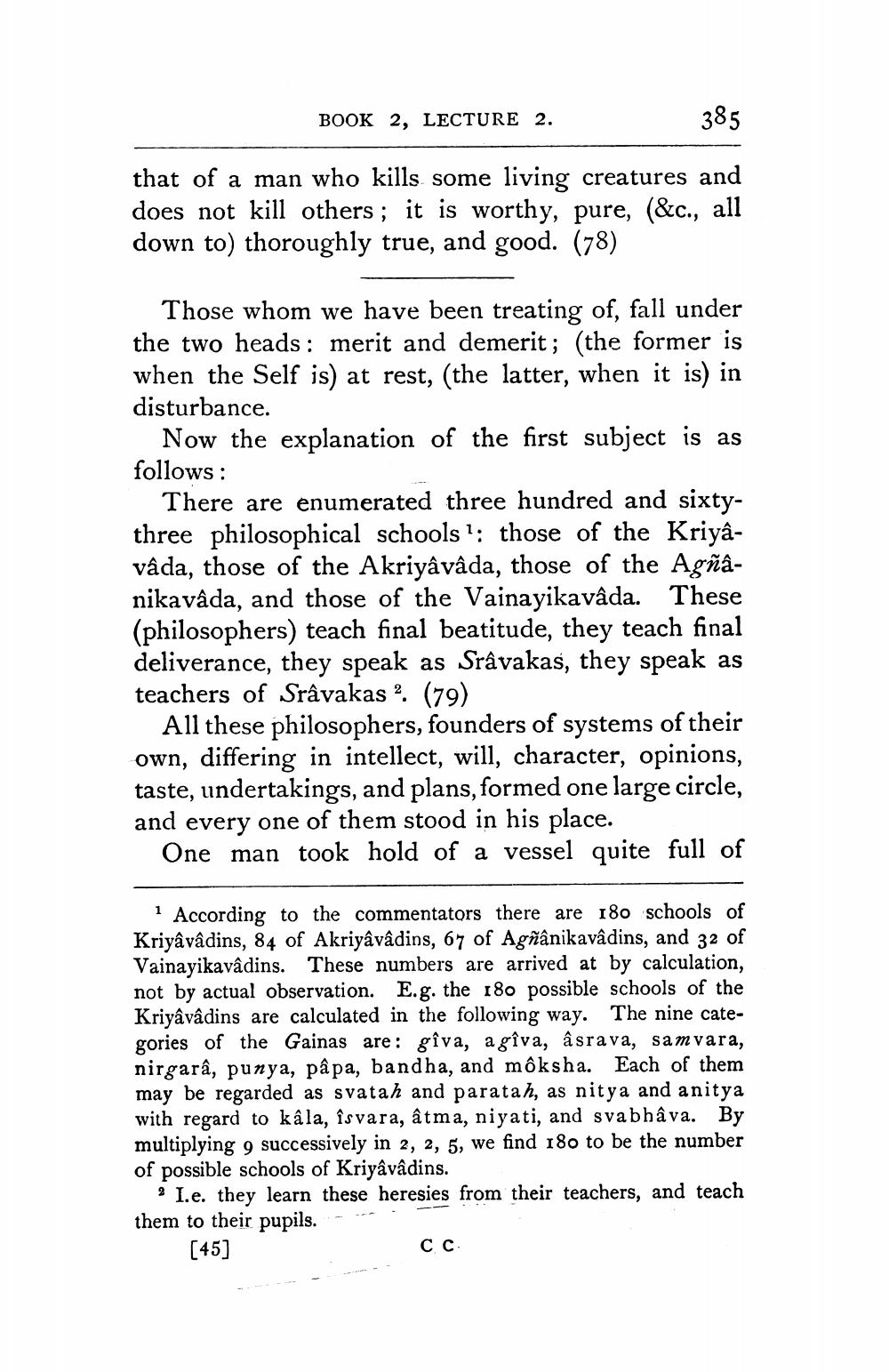________________
BOOK 2, LECTURE 2.
385
that of a man who kills some living creatures and does not kill others; it is worthy, pure, (&c., all down to) thoroughly true, and good. (78)
Those whom we have been treating of, fall under the two heads : merit and demerit; (the former is when the Self is) at rest, (the latter, when it is) in disturbance.
Now the explanation of the first subject is as follows:
There are enumerated three hundred and sixtythree philosophical schools 1: those of the Kriyâvâda, those of the Akriyâvâda, those of the Agñanikavâda, and those of the Vainayikavâda. These (philosophers) teach final beatitude, they teach final deliverance, they speak as Srâvakas, they speak as teachers of Srâvakas 2 (79)
All these philosophers, founders of systems of their own, differing in intellect, will, character, opinions, taste, undertakings, and plans, formed one large circle, and every one of them stood in his place.
One man took hold of a vessel quite full of
1 According to the commentators there are 180 schools of Kriyâvâdins, 84 of Akriyâvâdins, 67 of Agñânikavâdins, and 32 of Vainayikavâdins. These numbers are arrived at by calculation, not by actual observation. E.g. the 180 possible schools of the Kriyâvâdins are calculated in the following way. The nine categories of the Gainas are: gîva, a gîva, asrava, samvara, nirgarâ, punya, pâpa, bandha, and môksha. Each of them may be regarded as svatah and paratah, as nitya and anitya with regard to kâla, îsvara, âtma, niyati, and svabhâva. By multiplying 9 successively in 2, 2, 5, we find 180 to be the number of possible schools of Kriyâvâdins.
? I.e. they learn these heresies from their teachers, and teach them to their pupils. - * [45]
CC




